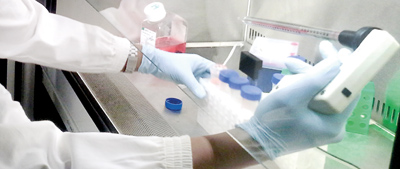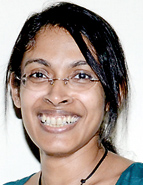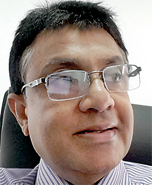News
Race on for effective treatment or vaccination against deadly dengue
While the National Dengue Eradication Week ends today, in the state-of-the-art Centre for Dengue Research (CDR) of the Sri Jayawardhanapura University, vital information is being gathered in the race towards finding either a treatment for this deadly viral disease or a vaccination against it.
A majority of people who are infected with the dengue virus do not fall ill and, in a first in the world, the CDR has developed an assay (for which an international patent has been secured) to find out the number of dengue infections a person has had unknowingly and the virus serotypes they have been infected with, the Sunday Times learns.

Research being carried out at the state-of-the-art Centre for Dengue Research (CDR) of the Sri Jayawardhanapura University
The good immune-response of these people who don’t fall ill despite being infected with the dengue virus should be simulated in a vaccine against this dreaded disease, said CDR’s Director Dr. Neelika Malavige.
It was in this backdrop that some of the findings of the committed team of the CDR – which is just a year old — which have either been studying the dengue disease patterns of people living around the Sri Jayawardhanapura University or keeping eyes glued to microscopes were showcased at the International Conference on Dengue Viral Infections from September 20-22.
The CDR being a vibrant part of the Faculty of Medical Sciences of the Sri Jayawardhanapura University and seeing no need to go out of its territory, this first international conference on dengue viral infections held in the country titled ‘Joining hands for a dengue free world’ was hosted in the auditorium of the university itself. It drew researchers and scholars from within as well as outside Sri Lanka.
The dire need of the moment is to find either a treatment for or vaccine against dengue, stressed Dr. Malavige, explaining that the incidence of dengue is on an upward trend. Reiterating that the death rate is being kept down due to good clinical management of patients, she however pointed out that there is a “huge strain” on the health systems of countries burdened with dengue.
Seventy percent of dengue infections are in Asia, in very poor developing economies, it is learnt, and Dr. Malavige urged a concerted and where necessary, joint effort to find treatment or a vaccine for this scourge. Dengue is the most important mosquito-borne viral disease in the world, estimated to cause 390 million infections annually.
“Dengue has been declared a priority infection by the World Health Organization (WHO), UNICEF (United Nations Children’s Fund) and the World Bank. However, until recently dengue infections were not considered as a disease of prime importance. Therefore, research on dengue was not given priority. As a result we still do not have any specific drug treatment for dengue or a vaccine for its prevention,” she says.
Now many centres in Asia are engaged in research on dengue transmission, its control, better diagnostic modalities, pathogenesis (development of the disease) and improved management strategies, according to her but there has not been enough opportunity to discuss research findings or have a dialogue on further collaborative research. Dr. Malavige was hopeful that the international conference held in Sri Lanka would pave the way for a joint effort in finding a cure or a vaccine.
Prof. Krishan Deheragoda of the Sri Jayawardhanapura University brought to the fore an important link between dengue infections and changing weather conditions,
This had been the crucial finding in the Colombo district, the most affected district in the whole of the country and which had been studied by a team headed by Prof. Deheragoda of the Geography Department of the university and comprising Prof. Marilyn O’Hara of the University of Illinois, USA, and CDR’s H.M. Prabath Jayantha.
The reported dengue cases in each area coming under the relevant Public Health Inspectors (PHIs) and the meteorological data of those areas had been used to carry-out Geographic Information Technology (GIT) based analysis, the Sunday Times learns.

Dr. Neelika Malavige
Results reveal that there is a positive correlation between Spatio-Temporal Distribution of Dengue Fever Sensitivity to Changing Weather Conditions correlated with land-use, lifestyles and household practices, Prof. Deheragoda has disclosed.
Prof. Deheragoda and team are also using GIT to map dengue epidemics and infection transmission patterns in a scientific manner and are carrying out real-time tracking of dengue hotspots, it is understood.
Like the prediction of the pathway of Hurricane Katrina in America, the team is hoping to use this technology to come up with information on how dengue epidemics will evolve. Through the Certificate Course in GIT being conducted at the university, Medical Officers of Health (MOHs) and PHIs are being trained to carry out real-time dengue tracking which will be helpful in dengue control.
Detailing dengue studies in Singapore, Mary Mah-Lee Ng, Professor and Head of Department of Microbiology, National University of Singapore, said physicians and research scientists are working hand-in-hand to study how to prevent dengue, primarily targeting zero-deaths from dengue infections.
Early diagnosis, prognosis, pathogenesis, animal models, anti-viral strategies, vaccine development and case management are part of the studies, she said, explaining that innovative nationwide dengue campaigns and smart phone applications have helped raise public awareness to keep dengue under control during an outbreak.

Prof. Krishnan Deheragoda
When studying the pathogenesis of the dengue virus infection, they had found that the virus isolates from Dengue Haemorrhagic Fever (DHF) cases replicated faster at the exponential phase than those from Dengue Fever (DF) cases. “We have now generated a bank of well-characterized clinical virus strains which are useful for future in vitro studies e.g. in challenge experiments to analyze the efficacy of an anti-viral compound or potential vaccine candidates,” Prof. Ng said.
Their studies have also shed more light on the underlying molecular mechanism during dengue virus (serotypes 1 to 4) replication in host cells. This knowledge could be translated for better clinical support for dengue patients, thereby increasing the chances of saving more lives and reducing hospitalization costs, she added.
Explaining that the dengue virus is a Flavivirus that consists of four distinct serotypes (DENV-1, -2, -3 and -4), Dr. Ananda Nisalak of the Department of Virology USAMC-AFRIMS, Thailand, cautioned that these serotypes display a high degree of antigenic cross-reactivity with each other. This is not the only problem as they also react with other mosquito and tick-borne flaviviruses such as Japanese encephalitis, yellow fever, West Nile and tick-borne encephalitis.
Reiterating that the co-circulation of two or more flaviviruses makes the serologic diagnosis of acute dengue infection an extremely difficult task, Dr. Nisalak added that this as well as the identification of circulating dengue serotypes is extremely important. This identification is necessary when initiating public health policy including vector control and early diagnosis and clinical management of patients.
Response from asymptomatic people basis of vaccine
Even though dengue is a scary illness, a majority of people although infected are without symptoms and this is why we need to simulate their “good” immuno-response in the production of a vaccine, says CDR Director Dr. Neelika Malavige. The response of these asymptomatic people would form the basis of an ideal vaccine, according to this Immunologist who heads the Department of Microbiology at the university.
Some people can get repeated infections as there are four dengue viruses and still have no symptoms. With this knowledge, the CDR is now undertaking a ‘Dengue Watch’ to find out what a good immune response to dengue is, the Sunday Times understands.
It is being carried out in a population of over 1,000 people registered for primary health care at the Family Practice Centre of the Sri Jayawardhanapura University. Part of this study is being done as a Ph.D project of Dr. Chandima Jeewandara of the CDR.The findings so far are interesting and startling:
- 74% of the population has been infected with dengue by the time they reach the age of 30 years.
- 89% of the population has been infected with dengue by the time they reach the age of 40.
- 92% of the population has been infected with dengue by the time they are more than 50 years of age.
- Only about about 10% of the population is ill after being infected with dengue. The other 90% are fine and have a very good response to the virus.

